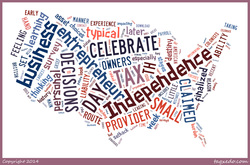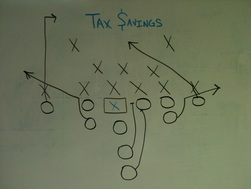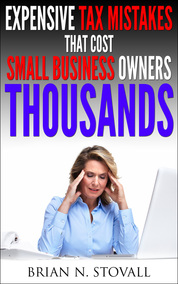|
Itemized deductions versus the standard deduction
The TCJA doubles the standard deduction, but suspends the personal exemptions and virtually eliminates many of the itemized deductions. The law temporarily eliminates miscellaneous itemized deductions subject to the 2 percent floor and limits the home mortgage interest deduction to home acquisition debt of up to $750,000. With these changes, some taxpayers may see a lower taxes. Some taxpayers that itemized in the past may not for 2018. Contact us is you need to run the numbers for your tax situation. If the results are grim, you may need to adjust your employer withholding (Form W-4) and/or quarterly estimated tax payments. Bunch charitable contributions The TCJA temporarily increases the limit of cash contributions to public charities from 50 to 60 percent of adjusted gross income (AGI). The only problem (as mentioned above) is that the double standard deduction and itemized changes will leave many taxpayers left out. One solution is to bunch or increase charitable contributions in alternating years, or set up donor-advised funds. Watch out for home equity debt interest The TCJA allows for home equity debt interest if the funds were used to buy or substantially improve the home that secures the loan. Taxpayers must keep good records to ensure that the proceeds were used in this manner, payment to credit card or other personal debt is not allowed (even if prior to 2018). Revisit 529 qualified tuition plans The TCJA revises earnings in a 529 college savings plan and allows for paying tuition at an elementary or secondary public, private or religious school, up to $10,000 per year. If you fall in this boat, it may be time to revisit their 529 plans. Maximize the qualified business income deduction And of course last but not least the QBI deduction (from our last post) for small business owners. Be sure to contact us for steps how this deduction can save your hard earned dollars
0 Comments
 The recently signed Bipartisan Budget Act of 2018 had a few tax extenders that are retroactive to 2017. some of the more notable provisions include: Exclusion for discharge of indebtedness on a principal residence The provision extends the exclusion from gross income of a discharge of qualified principal residence indebtedness through 2017. The provision also modifies the exclusion to apply to qualified principal residence indebtedness that is discharged pursuant to a binding written agreement entered into in 2017. Premiums for mortgage insurance (PMI) deductible as mortgage interest The provision extends the treatment of qualified mortgage insurance premiums as interest for purposes of the mortgage interest deduction through 2017. This deduction phases out ratably for taxpayers with adjusted gross income of $100,000 to $110,000. Above-the-line deduction for qualified tuition and related expenses The provision extends the above-the-line deduction for qualified tuition and related expenses for higher education through 2017. The deduction is capped at $4,000 for an individual whose adjusted gross income (AGI) does not exceed $65,000 ($130,000 for joint filers) or $2,000 for an individual whose AGI does not exceed $80,000 ($160,000 for joint filers). Three-year depreciation for race horses 2-years-old or younger The provision extends the 3-year recovery period for race horses to property placed in service during 2017. Contact us if you have already filed your return and qualify for these tax extender provisions.  If procrastination were the Super Bowl, many small business owners (SBO's) would have multiple "Lombardi" trophies. Time to put away those whites (unless you are Billy "White Shoes" Johnson) and pull out the ole playbook of late summer early fall tax planning ideas. Just like the start of the NFL football season brings teams a new playbook, SBO's need to update their tax strategy playbooks now to ensure that they will be ready for the tax planning season starting now. Most SBO's can take a look at their previous season's record to give them an idea of how good their tax playbook was and where they need to be this year. If you have not "completed the 2013 tax season" yet, here are some of the more important "game" dates in the coming months where many SBO's can complete the 2013 tax season. • September 15th - Tax extension deadline for C-Corps, S-Corps and Partnerships • October 15th - Tax extension deadline for personal tax returns • December 31st - Final day of tax planning for 2014 season If you have completed the 2013 tax, great, but this is not the time to sit back on your laurels! Time is now to focus on new tax plays for the 2014 season. The tax league’s “Front Office” is making quite a few rule changes this year that may make it difficult for SBO’s to score many tax savings touchdowns (expiring tax provisions for SBO’s), but the basic rules are still in effect. Since the season is shorter than the NFL one, tax planning is key to saving your small business thousands. Using legal "black letter" tax strategies in your playbook will ensure you have a winning record this season. Need help devising your tax strategy playbook, feel free to contact us.
 Today begins the long extended Labor Day holiday weekend and many individuals have probably already taken the day away from "labor" and their auto-responders are doing all the "work" today. For many small businesses however, they are more likely than not hard at work today servicing clients and supporting their employees that have taken the day off. The Labor Day holiday is a day to celebrate you...the small business owner. Signed into law in 1894 by President Cleveland, Labor Day celebrates the American Labor movement, and you as the small business owner are an important part of that continued movement. Back then it was an industrial movement, but today it is more about innovation, and technology. Either way the small business owner will always have a place in the American economy. So when you finally do get to take the day off and enjoy the barbecue, beach, and college football holiday weekend be sure to remember that it is YOUR efforts that we are celebrating. Thanks for your efforts small business community. Have a safe Labor Day weekend.  There is a tax firm out there that can help their clients pay no income tax. This tax firm is comprised of a large work force that has access to all the necessary technology tools and tax information to ensure that their clients use all the legal loopholes to bring their tax liability to zero and many times a surplus. This tax firm is so good at saving their clients tax dollars that major accounting firms even loan their employees to them! Sounds like a great accounting right? Only one problem this accounting firm has one client...and that client is GE. GE's Tax department is one of the most prestigious tax firms in the country. A quick Google search of "GE Tax Department" shows the efforts that GE goes through to pay no taxes. Most small business owners don't have the resources and time to research the tax strategies like their "Big Boy" counterparts. They then go about taxes much the same way most personal taxpayers do, taking the last minute "SALY" approach. Learn more about "SALY" here. Approaching taxes as a routine is ok, if your routine is done on a consistent basis. But even a consistent routine has small changes. Take your morning routine for instance. You may get up at the same time every day, but is the same song playing when you wake, or do you have the same breakfast every morning? The same goes for your tax planning routine. There is a consistent guide that you follow, but you must always monitor for the changes. This includes staying up to date on tax changes, and how they affect your business decisions during the year.
There are quite a few tax issues affecting small businesses currently. From the changes in depreciation, and deduction rules to healthcare now is the time to take advantage of tax strategies for main street businesses like yours. It's doesn't take having a large tax firm as your tax department to save your hard earned money, but it does take some work (with a little help from a tax expert friend like us :-). So do like "Nike" the Goddess of motivation/implementation and "just do it".  As the Independence Day 4th of July celebrations are being finalized for later this week, I got to thinking about the feeling I had as an entrepreneur the day I claimed independence from the typical route and set out on my own destiny. Being an entrepreneur can provide a person with the ability to be independent but that can be both an asset and a liability. On the one hand you get to make all the decisions. Many of those decisions are made however with either little to no knowledge of the situation or the effects of those choices made (especially in the early stages of a business). Typically when decisions are made in this manner, a setback (or as some would call it a learning experience) occurs. We have learned, from taking a look back at history, the main reason we celebrate Independence Day is due to the tax burden placed on American colonists by the British. Taxes have always caused many small business owners grief. In a recent report by Paychex, a leading payroll provider; 47% of small business owners ranked taxes as the largest issue impacting them in 2014. If that includes you, then now is the time to claim your tax independence. So in between the plates of hot dogs, ribs and watching the fireworks, download the "Tax Independence Survey" below and stop making the expensive tax mistakes that keep many entrepreneurs and small businesses worried about their tax future. The survey focuses on key areas of your life (business and personal) where there may be tax savings that you can use to celebrate more holidays (maybe Christmas in July) with your family. Then after the holiday contact us so we can begin implementing some of the tax strategies. We hope you have a safe and happy Independence Day 4th of July celebration.  While getting in my morning run at the local high school track, I came across a notice informing parents that summer football camp would be starting next week with practices starting at 7am -1pm (have to start early with the hot summer days in the south). This got me thinking about how many high school football teams prepare for the upcoming season with summer practices, cardio and strength training and of course class work (except in this case it’s watching film and learning the playbook). As you can see, many high school football teams are not taking off this summer. Another team that is not taking off for the summer is the IRS, and it seems that their playbook gets more complicated year after year. As a small business owner, you need to also “train” in the off-season so that your small business will be ready. Just like the football team, preparation before the season is a key component to success. You need to come up with tax strategies in your playbook to save your hard earned money. The summer is not the time to take off so use the “down” time and the calendar to your advantage. The summer football camp also got me thinking about a tax strategy that can help small business owners pay for the football camp via income shifting to their kids (add this one to your tax strategy playbook). Hiring your kids in your small business will shift income to a lower tax bracket and at the same time allowing the football camp payment to be a business expense. For more details on hiring kids in your small business be sure to read the chapter, How Employing Family Can Cut Taxes in my book “Expensive Tax Mistakes That Cost Small Business Owners Thousands” on Amazon. So use the summer to your advantage as a small business owner and hire your kids. Just be sure that their work schedule does not conflict with football camp.  With the Memorial Day holiday in the rearview mirror, many small business owners and entrepreneurs and busy planning their holiday vacations and many other summer activities. Another planning activity that really needs to be on every small business and entrepreneur’s list is tax planning. If you are like most small business owners and entrepreneurs, you waste thousands of dollars every year in taxes you don’t need to pay. You then grumble about it on April 15 . . . then wait until next year to get smacked again…you see a pattern here. The sad truth is, it doesn’t matter how good your tax accountant (let’s call him “Fully Depreciated Frank”) is with a stack of receipts on April 15. The key to beating the IRS is tax planning. The summer is a great time for tax planning. As a small business owner and entrepreneur, has “Fully Depreciated Frank” contacted you with answers to all of these questions?
If not, you need to go to Amazon and get our new book “Expensive Tax Mistakes That Cost Small Business Owners Thousands”. The book reveals the mistakes and missed opportunities that can cost you thousands in tax; then shows you how proactive tax planning can rescue those wasted dollars. Stop by Amazon now and stop making those expensive tax mistakes that make you hotter than the summer heat.  We all know a happy employee can increase your bottom line. Today on the local #FOX5ATL morning show there was a segment about the new Fortune 100 list of best places to work and the reasons these companies made the list (citing a happy work environment, fair pay, perks, benefits). Of course we are talking about large corporations, because as small business owners and entrepreneurs, OUR business is the best place to work so give yourself a pat on the back small business owners and entrepreneurs you made the list! The morning show probed deeper on their social media network's "Question of the Day" asking what kinds of perks would people like. The answers were typical and pretty much validated the Fortune study. Mind you I am listening to this in the background as I manage the workflow of the early season tax returns in our virtual office....wait is that a perk? The question did get me thinking of ways small business owners can make their businesses the best place to work for them and their employees. one of the major ways is to offer benefits and perks to you and your employees, however many small business owners and entrepreneurs do not offer benefits because they think they are to expensive and/or difficult to implement. Did you know that by not offering perks and benefits your are more likely than not losing money instead of saving it? By offering perks and benefits you and your employees will have the opportunity to write off many of the expenses that you currently can't (or have been capped by the IRS). Making the most out of your tax deductions, credits and income shifting are just a few of the tax strategies outlined in my recent book Expensive Tax Mistakes That Cost Small Business Owners Thousands that can be found on Amazon. Be sure to pick it up and find ways to offer perks and benefits that will keep you and your employees on the list of best places to work.  2013 has been a big year for taxes. Earlier in the year, Congress passed legislation averting the so-called "fiscal cliff," and many of the "Obamacare" changes have taken effect, or are about to. While few of us who watched the process would consider it Washington's finest hour, we now have answers to many of the questions that have made proactive planning so difficult over the past few years. And now, with just 20 days left in 2013, it's time to review the "deals" the IRS is offering and start to plan. Here are the highlights: • First, the Bush tax cuts are permanently extended for income up to $400,000 ($450,000 for joint filers). Ordinary income above those thresholds is taxed at 39.6%, while qualified corporate dividends and long-term capital gains above those thresholds are taxed at 20%. • Next, the 2% payroll tax "holiday" of 2011-2012 is over. This can mean over $2,000 in additional tax for those earning over $100,000 per year. • Third, the Alternative Minimum Tax has finally been indexed for inflation. This means Congress will no longer have to "patch" it every year to avoid entangling millions more taxpayers in its web. • Finally, the Medicare tax provisions of the Affordable Care Act, or "Obamacare," have taken effect. This means an extra 0.9% tax on earned income above $250,000 and a 3.8% tax on investment income for taxpayers earning more than $200,000 ($250,000 for joint filers). President Obama has called for slashing several more tax breaks, possibly including some sacred cows like mortgage interest. However, after the recent government shutdown, there appears to be little appetite on Capitol Hill for further changes to the code. With just 20 days left in until the “IRS Holiday Tax Sale” ends join us here to review some specific strategies for minimizing your tax under the new rules. |
AuthorVarious contributors Archives
January 2024
Categories
All
|


 RSS Feed
RSS Feed